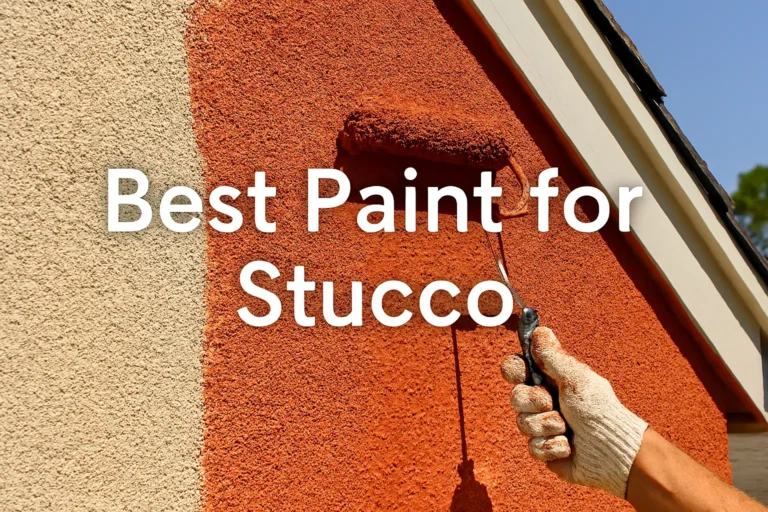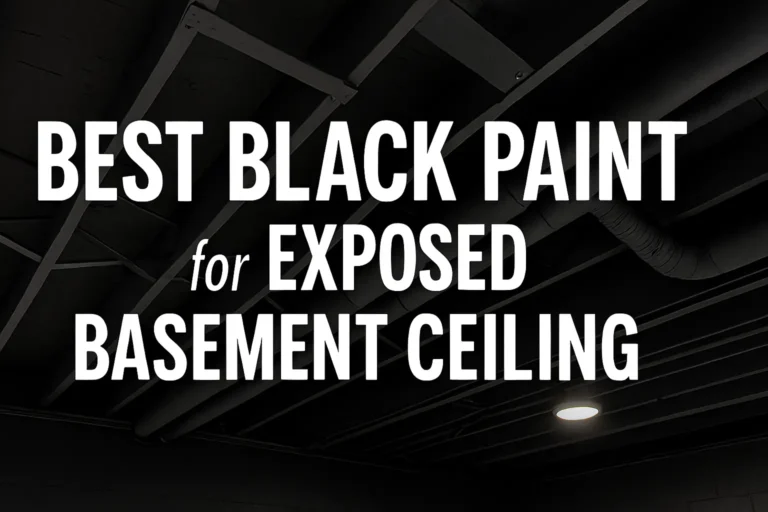Limewash Paint: Everything You Need to Know Before Choosing It
When it comes to giving your home a timeless, rustic, and natural finish, few options rival limewash paint. Unlike standard acrylic or latex paints, limewash has been used for centuries across Europe and is making a strong comeback in modern interiors and exteriors. Its soft, chalky texture and eco-friendly composition make it a favorite among designers, DIY enthusiasts, and homeowners seeking something different from the typical smooth finish.
In this guide, we’ll explore limewash paint meaning, its pros and cons, where to buy it, how to use it for different rooms, and why it could be the perfect choice for your next renovation.
What is Limewash Paint?
Limewash paint is a traditional finish made from slaked lime (calcium hydroxide), water, and natural pigments. Once applied, the paint absorbs into the surface rather than sitting on top, creating a textured, matte finish that feels alive. Unlike synthetic paints, it allows the wall to breathe, reducing issues with moisture buildup.
This unique absorption process also means that limewash walls develop a natural variation in tone, giving your space an earthy, old-world charm that regular paint simply can’t replicate.
Before painting, always ensure your walls are properly prepped. Read our guide on how to clean walls before painting for best results.
Limewash Paint Pros and Cons
Like any product, limewash paint has its advantages and limitations.
Pros:
- Natural Look: Creates a warm, soft, mottled texture.
- Eco-Friendly: Made with natural minerals, VOC-free, and safe for indoor use.
- Breathable: Prevents trapped moisture, ideal for older homes.
- Durable: Becomes stronger over time as it calcifies.
- Unique Finish: No two limewashed walls look exactly the same.
Cons:
- Requires Proper Surface: Works best on porous surfaces like brick, plaster, or stone.
- Fading: Can lighten over time, requiring touch-ups.
- Application Learning Curve: Not as straightforward as rolling latex paint.
- Limited Color Range: More muted and natural shades compared to modern paints.

If you’re torn between durability and aesthetics, check our guide on the benefits of painting your home to see how limewash compares.
Limewash Paint for Interior Walls
One of the most popular uses today is limewash paint for interior walls. Its calming, chalky finish works especially well in living rooms, bedrooms, and bathrooms.
- Limewash Paint Bedroom: Adds a cozy, cocoon-like feeling.
- Limewash Paint Bathroom: Works beautifully in low-sheen, moisture-friendly spaces (but pair with proper ventilation).
- Limewash Paint Living Room: Creates a warm, inviting environment with timeless depth.
If you’re painting ceilings to complement your limewash walls, check our detailed guide on the best ceiling paint colors for smooth design flow.
Limewash Paint for Exterior Walls
Historically, limewash was primarily used outdoors. In fact, it remains one of the best paints for exterior walls thanks to its breathability and natural weather resistance. Over time, it develops a patina that feels authentic rather than worn out.
Homeowners who want character in their façade often choose limewash because it allows buildings to “age gracefully.” Unlike synthetic paints that peel, limewash wears down evenly, maintaining charm for decades.
Limewash Paint Texture: Why It Stands Out
The main reason designers love limewash is its texture. Instead of flat, one-dimensional walls, limewash creates a layered, cloud-like effect.
- Limewash Paint Wall: Perfect for feature walls that stand out subtly.
- Limewash Paint Texture Seamless: While irregularity is part of its beauty, skilled application can create smoother, seamless finishes.
- Limewash Paint Interior Accents: Works on fireplaces, alcoves, and stairwells.
If you’re looking for other ways to bring texture into your home, you may also enjoy our guide on how to stain a fence for rustic wood finishes.
Popular Brands: Portola Paints Limewash
Among modern brands, Portola Paints Limewash is one of the most recognized. Known for its curated color palette and high-quality ingredients, Portola makes limewash accessible for both professionals and DIYers.
The company offers pre-tinted options in trendy shades like soft beige, muted greens, and earthy browns. If you’re considering Portola, remember to order samples first—since limewash looks very different depending on lighting and surface texture.
Limewash Paint Colors: Timeless and Modern Choices
While limewash traditionally comes in neutral and earthy shades, modern formulations include a wide variety of tones.
- White & Creams: Classic, airy, and timeless.
- Beige & Taupe: Cozy and grounding.
- Limewash Paint Green: A growing favorite in interiors for its calming, natural appeal.
- Soft Blues & Greys: Great for creating serene bedrooms and bathrooms.
Want a perfect ceiling match for your chosen wall color? Explore the best white ceiling paints for a crisp, balanced finish.
Where to Buy Limewash Paint
Finding limewash paint near me depends on your location:
- Limewash Paint UK: Widely available at specialty paint shops, online retailers, and B&Q (limewash paint B&Q).
- Limewash Paint Canada: Found at eco-friendly suppliers and boutique paint companies.
- Limewash Paint US: Portola Paints, Romabio, and independent local shops stock it nationwide.
- Online Stores: Many brands sell directly, making it easy to find niche colors.Shop on amazon
For tools, rollers, and brushes to get started, check out our recommendations for the best tools to paint a ceiling.
Limewash Painting Tips for Beginners
If you’ve never used limewash before, here are a few practical tips:
- Prep the Surface: Works best on porous surfaces like plaster, stone, or brick. Prime smooth walls with a mineral-based primer.
- Dampen Walls First: Lightly misting the wall helps limewash absorb better.
- Use a Large Brush: Rollers don’t give the same textured effect, use a masonry or block brush.
- Layer in Cross Motions: Apply in X or sweeping patterns for a mottled finish.
- Expect Variation: Remember, unevenness is the beauty of limewash.

If you’re painting a full room, you’ll also want to know how long it takes to paint a room so you can plan ahead.
Limewash Paint vs. Traditional Paint
- Limewash: Breathable, natural, textured, eco-friendly.
- Acrylic/Latex: Smooth, wide range of colors, easy to apply.
- Oil-Based: Durable but less eco-friendly and harder to work with.
For certain rooms like bathrooms, you may still want to explore the best paint for bathroom ceilings to prevent mold before deciding.
Final Thoughts
Limewash paint isn’t for everyone, but if you’re drawn to natural textures, timeless character, and eco-friendly finishes, it might be exactly what your home needs. Whether you’re revamping a bedroom, bathroom, or living room, or breathing life into an exterior wall, limewash delivers a one-of-a-kind aesthetic that grows more beautiful with age.
If you’re new to the process, start small, maybe a feature wall or fireplace, and build from there. Once you see the charm of limewash in action, you’ll understand why it has lasted for centuries and continues to inspire modern design.






